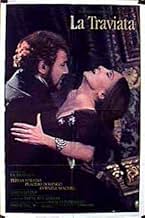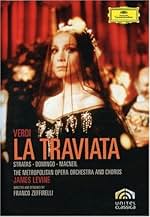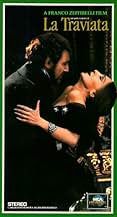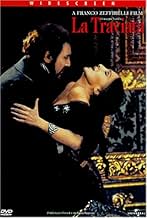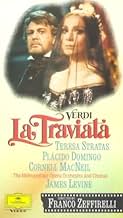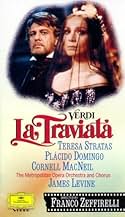If one considers the love stories of all times, beside the undeniable classics by greatest playwrights, inevitably comes to mind the name of Alexandre Dumas (fils) who, in 1852, wrote a novel THE LADY OF THE CAMELLIAS. Since then, the endless love story set in the 19th century Paris has inspired both opera writers and movie directors. Consequently, the power of the tale embedded in the libretto by Francesco Maria Piave prompted opera maestro Giuseppe Verdi to write one of his most famous operas LA TRAVIATA basing his content entirely on the story about a deathly ill courtesan who, though does not have long to live due to tuberculosis, finds the true love of her life. What came out was a greatly successful work where only characters were renamed but where the audiences were provided with something special and timeless: glorious music.
However, lots of modern viewers skip those classics easily reducing their knowledge to films only. More to say, the commercial nature of cinema hardly promotes any of this high rank entertainment. As a result, the question appears: is it possible to captivate, amaze and enthuse a pop corn generation's viewer with the staff of this sort? The Italian director Franco Zeffirelli managed to prove it possible through this production with some of his personal "additions" and, most importantly, with the magnificent leads: marvelous tenor Placido Domingo and astounding soprano Teresa Stratas. Though LA TRAVIATA has been staged and filmed several times so far, this version occurs to be the best one. Why?
The first aspect that addresses the viewers, both opera buffs and modern genres' lovers, the aspect that highlights the very core of their emotions and experiences, are the visuals of the movie. From the very credits with the view of the Notre Dame Cathedral and the surroundings of the Seine River when the sounds of larks and pigeons mix with the sounds of crows, it all appears to be, as if, a moving work of art that you look at in perfect admiration and astonishment. The wardrobes together with sets and decorations of interiors are stunning to the very essence of visual feast. This effort taken in providing the viewer with vision's awe is magnificently executed throughout. There are plenty of moments one could enumerate praising their pearls and uniqueness but for me, personally, there are two sequences of greatest interest: the lavish party as a flashback of Violetta's delirious mind and her visit to the countryside where the nature seems to praise the sincere love as no one and nothing else. This goes with sublime music by Verdi, which is practically much more memorable for the viewers and their enthusiasm for the entire work of art. Opera is promoted by modern means. Therefore, some of the commentators are right saying "paradoxically" that this is an opera movie for people who hate opera.
Besides, the whole cast fit very well to their roles. This refers both to the lead I have mentioned before as well as to the supporting cast. Placido Domingo as Alfredo Germont and Teresa Stratas as Violetta Valery were a perfect choice for the couple because of their attractiveness and the desirable chemistry. Cornell McNeil is excellent as Giorgio Germont the authoritative parent who, supposedly, cares for his son's future. The three memorably reach the "top notch" performances at the end when emotions are riding to the highest degrees... The supporting male and female roles, including a bunch of beautiful young maidens are easily recognizable and leave a personal impression in viewers.
So to say, LA TRAVIATA is a true work of art, a mysteriously beautiful and subtly exquisite screen work that anyone should see. Referring to the words of Vincent Canby in New York Times who called this film "triumph" and found it "dazzling," I heartily recommend this masterpiece! Perhaps one of the greatest operas of all times and one of the very best productions by Franco Zeffirelli.


